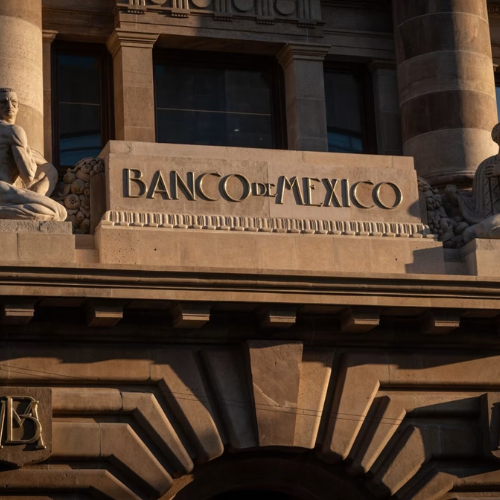The Bank of Mexico, also known as Banxico, made a major decision on Thursday by cutting its interest rate by 50 basis points, bringing it down to 9.00%. This was a unanimous decision made by the central bank’s governing board.
This is the second time in a row that Banxico has cut interest rates by this amount. The bank had already lowered the rate at its February meeting, and now it has done so again. The interest rate is now at its lowest level since September 2022.
Banxico said the decision was based on the fact that inflation is slowing down. Inflation refers to how much prices of goods and services go up over time. When inflation is high, people have to pay more for things like food, housing, and transportation. Right now, inflation in Mexico is within the bank’s target range, meaning it is under control for now.
Inflation is Dropping, But Trouble is Brewing
Recent data shows that Mexico’s inflation rate has fallen to 3.67% in the first half of March. This is lower than the 3.74% recorded the previous month. A lower inflation rate is usually good news because it means people do not have to spend as much on daily essentials.
Trump’s Tariff War Stalls Chinese Investment in Mexico
However, despite this progress, Mexico’s economy is showing signs of weakness. Last year, the country suffered from a severe drought, which hurt agriculture and food production. In recent weeks, tensions with the United States have also created new problems for Mexico’s economy. The U.S. government has made threats about imposing new tariffs on imports, which would make it more expensive for Mexican companies to sell their products in the United States.
One of the biggest concerns is related to Mexico’s auto industry. Many Mexican factories produce cars and car parts that are sent to the U.S. for sale. But with new tariffs being introduced, selling these products may become more difficult. This could result in job losses and a slowdown in Mexico’s economic growth.
A major financial institution recently predicted that a recession in Mexico is “unavoidable” after data from the country’s statistics agency showed the economy shrank by 0.2% in January.
Tariff Uncertainty Forces Samsung to Stop Investment and Cut Jobs in Mexico
Banxico Warns of Economic Slowdown in Mexico
While inflation is easing, Mexico’s overall economy is struggling. Data from January shows that the country’s economy shrank by 0.2%. If the economy shrinks for two quarters in a row, it is considered a technical recession.
Experts believe Mexico is already heading toward a recession. The Bank of Mexico also acknowledged that economic activity is expected to remain weak in the first quarter of 2025. If this happens, it would mark the second straight quarter of economic contraction.
Banxico does not control economic growth directly. Its main job is to keep inflation under control and maintain financial stability. However, since the economy is slowing down, the central bank has more room to cut interest rates further. Lower interest rates make it cheaper for businesses and individuals to borrow money, which can sometimes help stimulate economic growth.
Although Banxico has been more cautious than other central banks in the region, its recent decisions suggest that it is willing to take action to support the economy when needed. However, ongoing uncertainty related to trade tensions and possible new tariffs from the U.S. remains a major concern for Mexico’s financial future.


